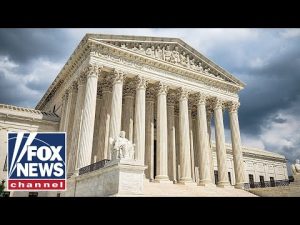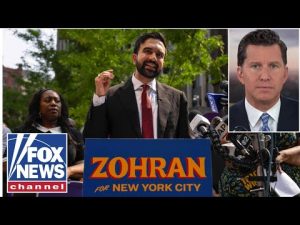In the world of politics, nothing surprises anymore. The mayoral race in New York has taken a bizarre twist, with candidates now being judged not on their policies but on their presence at religious sites. The idea that an American politician, particularly in a city so historically scarred by events like 9/11, is criticized for not knowing the name of a mosque is quite the spectacle. This latest demand doesn’t merely require a nod from the leaders. It demands a bow. And if you listen closely, you can hear the faint echoes of political correctness trying desperately to rewrite the rules of governance.
Zohran Mamdani, a candidate with a background far from the American heartland, seems to suggest that failing to name a mosque is an unforgivable political sin. Perhaps what’s most fascinating is the air of entitlement. Instead of advocating policies that unite, he asks for something that divides. It shifts the narrative from inclusion based on shared values to a strange game of cultural one-upmanship. Somehow, the streets of New York City have become a battleground over cultural assimilation – except it’s the Americans who are being asked to assimilate to something foreign.
One might argue that this race to accommodate every demand from new communities speaks volumes about the missteps in the immigration debate. Conservatives have long sensed that the concept of a melting pot was silently replaced with a checklist for cultural submission. When did the conversation about welcoming newcomers shift to obligations for long-standing citizens? This is more than just a New York issue; it’s a reflection of what’s happening nationwide – a call to bend over backward to not just accept but participate in customs and practices that were once considered personal rather than political.
What we’re witnessing is a troubling evolution: from tolerance to downright integration into foreign cultures brought here by new immigrants. It begins innocently with requests for acceptance, but inevitably, there’s a push for endorsement, decoration, and ultimately, participation. It’s a pattern familiar in recent discussions, much like the orchestrated progress of social movements demanding more than acknowledgment from the public. This strategy of steadily escalating demands is not new, but it’s becoming more apparent with every nod towards enforced multiculturalism.
It’s time to question when enough will be enough. Will there come a point where local politics can focus on systemic issues that truly matter rather than ticking off cultural checklists? As traditional values are put to the test, there’s a need to remember that the principles this country was built on shouldn’t be negotiable in the face of new cultural challenges. Citizens should call for a return to encouraging genuine integration, where immigrants appreciate and adapt to their new homes instead of reshaping them. It’s past time for a reminder that America’s greatness lies in shared aspirations, not in the erasure of its core identity.







